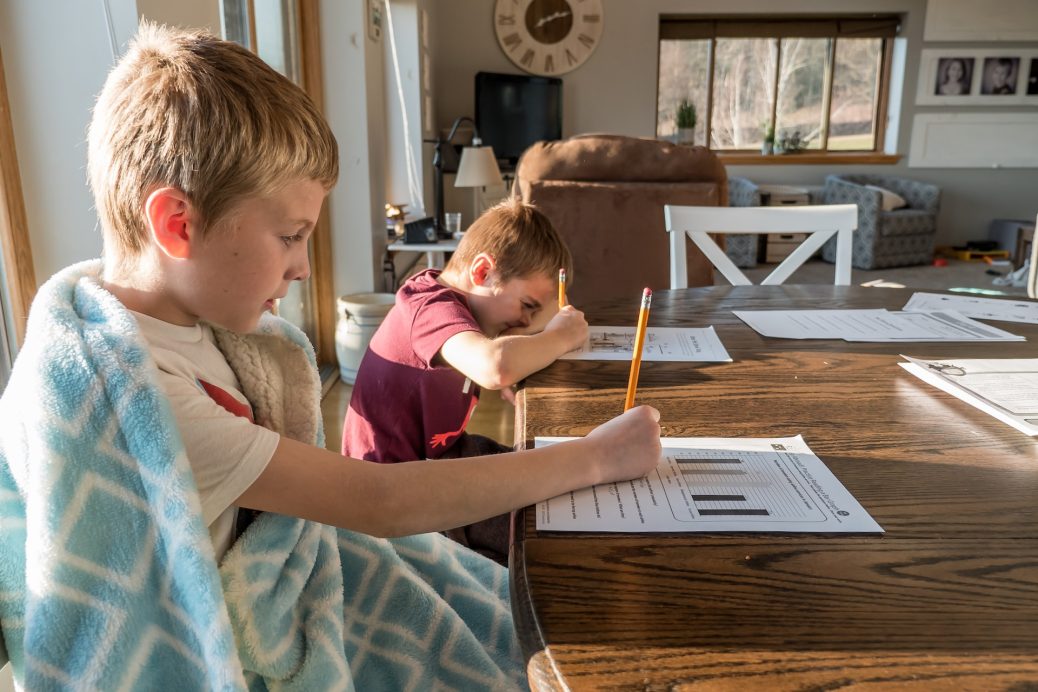On these stressful days, kids make trouble, and they reply that they feel anxious so here are some tips to manage behaviour during the coronavirus. It’s their method for releasing and expressing their dissatisfaction. Remember, maintaining discipline and doing the practice of remaining calm during these troublesome times help to manage panic. Start understanding yourself and try to cope and do Management of Your Own Emotions first. You can deal with your emotions and feelings of anxiety by working out and embracing a normal practice. The more settled and relaxed you are, the better you can deal with your kid’s responses.
These tips to manage behaviour and emotions during coronavirus can be helpful for parents and guardians which are following:
Divert your Youngsters
If your youngster is misbehaving, then try to divert him to other things. When you see that your youngster is about to start misbehaving then redirect him. You can shift him to his favourite toy or book which he likes to see the most.
Breathing Exercising
If you feel stressed, tired or feel anxiety then take a deep breath, and do simple breathing exercises that would be more helpful. You can take a deep breath and count up to 5 and then increase up to 10 and you can repeat the process. When your youngster does misbehaviour with you, don’t respond to him, do your exercise taking 2-3 minutes and when you feel calm and relaxed you can talk to the child and respond.
Do Creativity
Try to do creativity with your kids like painting, gardening, sketching, cooking, baking helps to develop creativity within your children.
Meditation
Meditation is a powerful method to keep you calm and relaxed. For making you free from the feelings of anxiety, depression and frustration. Giving you time through meditation for yourself helps to improve your emotional health.
Rewarding Good Behavior
Rewarding good behaviours helps to keep your children on your track. When they know that they will be awarded their favourite meal, snacks, and toys for doing and showing good behaviour. Making their beds, doing homework properly, getting along with siblings, and helping with household chores should be rewarded.
Never shout at or hit your kid
Getting angry in this manner will just harm your relationship and affect your kid’s feeling of well-being and security.
Ignoring Bad Behaviours
Ignoring bad behaviours can be a successful tool when attempting to get your youngster to quit something. This is an approach where parents can track or even stop bad behaviours by simply ignoring their behaviours.
Positive Attention
The objective of this method is to praise behaviours you might want to increase. When you see your kids doing good things or stuff then praise them. Praising expands good practices. Praising words, for example, Great job, Thank you, use these particular words for the behaviour you noticed and need to see.
Managing Emotions
Guardians play a significant part in assisting youngsters with managing feelings. Be there for your youngsters and understand their sentiments. Support is a strong method for telling your youngster their sentiments are OK. You can assist your kid with dealing with their sentiments securely. I know it’s hard for you to be away from your companions. Spending a couple of moments with youngsters in coordinated play is useful in supporting feelings, guidelines and parent-kid connections.
When they experience unknown feelings they ought to have a cool-down spot. That could be a room, an extraordinary seat, or even only a spot on the sofa they can go to when feeling overpowered.
Time Table and Daily Routine
Kids can practice daily routines and take benefit from daily routines. Make an overall timetable for the everyday schedule, You can incorporate time for lunch, schoolwork, snacks, playtime or screen time. Similarly, build up waking and sleeping time like before COVID and keep up with this every day.
Outdoor playing is significant for youngsters’ physical and psychological wellness. Plan calls/video visits with friends, family or educators to assist with keeping up with these connections and social associations.
Related Article: Tips to Manage Daily Routine During Coronavirus
Guardian Modeling and Self-care
By taking care of yourself, you are setting yourself up to a role model level. Ready to get your nurturing tools? Set aside a few minutes for yourself, regardless of whether it’s only for 5 minutes every day. Recognize your feelings, stressors and stresses. Focus on rest, practice and smart dieting – the fundamentals are a higher priority than anything in your life.


